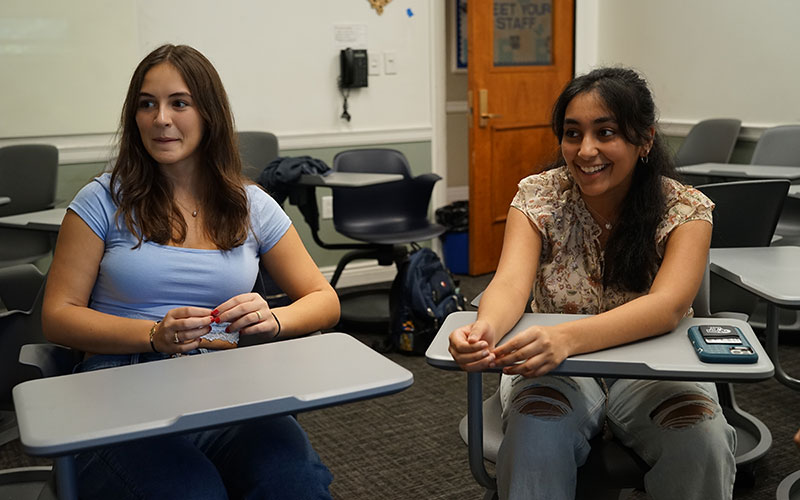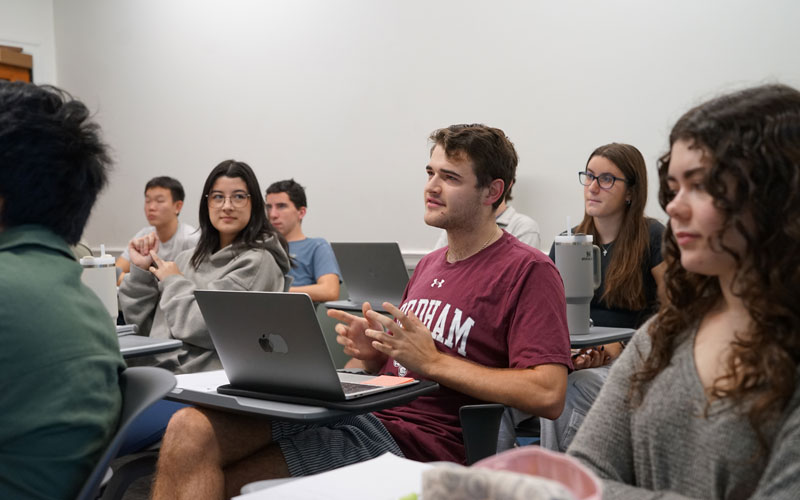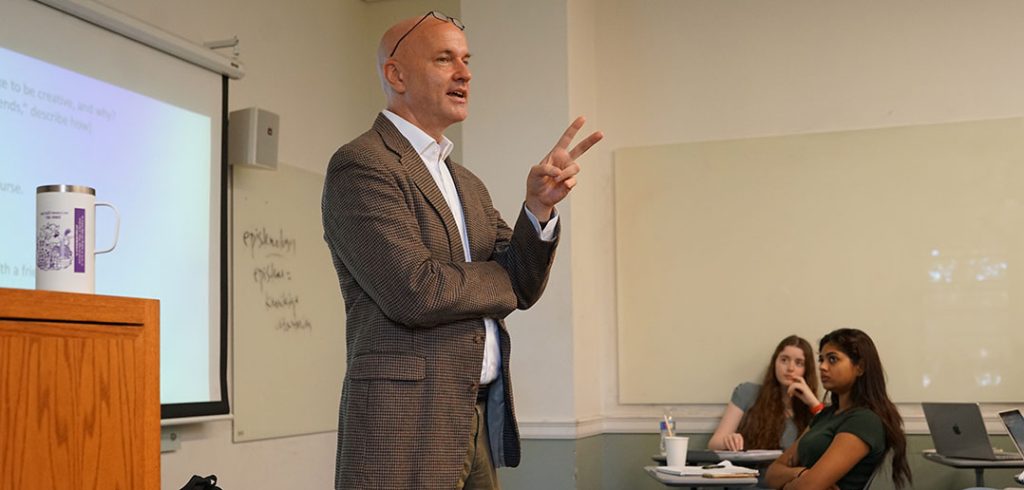Professor Stephen Grimm’s students are exploring that question and others in their Philosophy of Human Nature course this semester.
“What we’re really trying to figure out is whether AI could replicate human nature and whether in the future, [when]we’ll be living among AI—whether or not AI is going to be used to help us or harm us,” said Sarah Kidwai, a first-year student at Fordham College at Rose Hill who is majoring in chemistry.
Using Philosophical Skills to Unpack AI
The course includes some required texts, such as works by Plato and Aristotle, as well as other materials that are left up to the instructor each semester.
Grimm said that he thought students would enjoy the chance to dive into AI. He assigned them several current research articles, including “The curious case of uncurious creation” by Lindsay Brainard, an assistant professor at the University of Alabama, published in the journal Inquiry this fall. Brainard defined creativity as something that requires the maker to have both agency and curiosity, which, she wrote, are two things that current AI models do not have.

In early October, students worked in groups to put this definition to the test. They discussed tasks such as a bird building a nest or a student writing a research paper, and had to make an argument as to why they were or weren’t creative. They then compared their responses to Brainard’s definition of creativity and examined a larger question: Can AI be considered creative?
Grimm initially asked the class this question, and almost all said no, based on Brainard’s definition. But then he cited examples, such as a working paper out of the Wharton School of Business’ Mack Institute, which found that “ChatGPT can generate higher quality business innovation ideas than MBA students.”
“I didn’t think that AI could be creative, but now, I’m starting to think maybe,” Kidwai said. “On TV, there’d be an episode where robots take over [and]it sounds kind of crazy, but I feel like there is a potential for something like that.”
For Aidan Nanquil, who is a first-year student at Fordham College at Rose Hill majoring in philosophy, studying a current issue like AI in this discipline was a new experience.
“I really only studied ancient, medieval, modern [philosophy], so starting off a philosophy class with AI and the philosophy of artificial intelligence—I was so unprepared because there were so many different things to consider, so many different questions,” he said, adding that he liked that the class was different than other philosophy courses.

Examining Human Understanding
Grimm said that he hoped the students would learn how to approach challenging topics like AI in a philosophical way—”just trying to probe as deeply as possible about human understanding and human consciousness.”
Many of the students said that the course opened their eyes to how much AI could impact society.
Lauren McNamara, a first-year Fordham College at Rose Hill student majoring in biology, said she wondered how the job market would change as she prepares to enter the workforce.
“Is the job I’m going to go into going to be available when I get there, especially after all my training?” she said.
But while some said that they were scared of the consequences, Nanquil said that he enjoyed getting to dive into these big picture questions.
“A big part of why I love this class is because I want to figure out what makes us essentially human,” he said. “Philosophy, for me, is still important, because it’s about figuring out what makes us unique and sharing that humanity with each other.”

